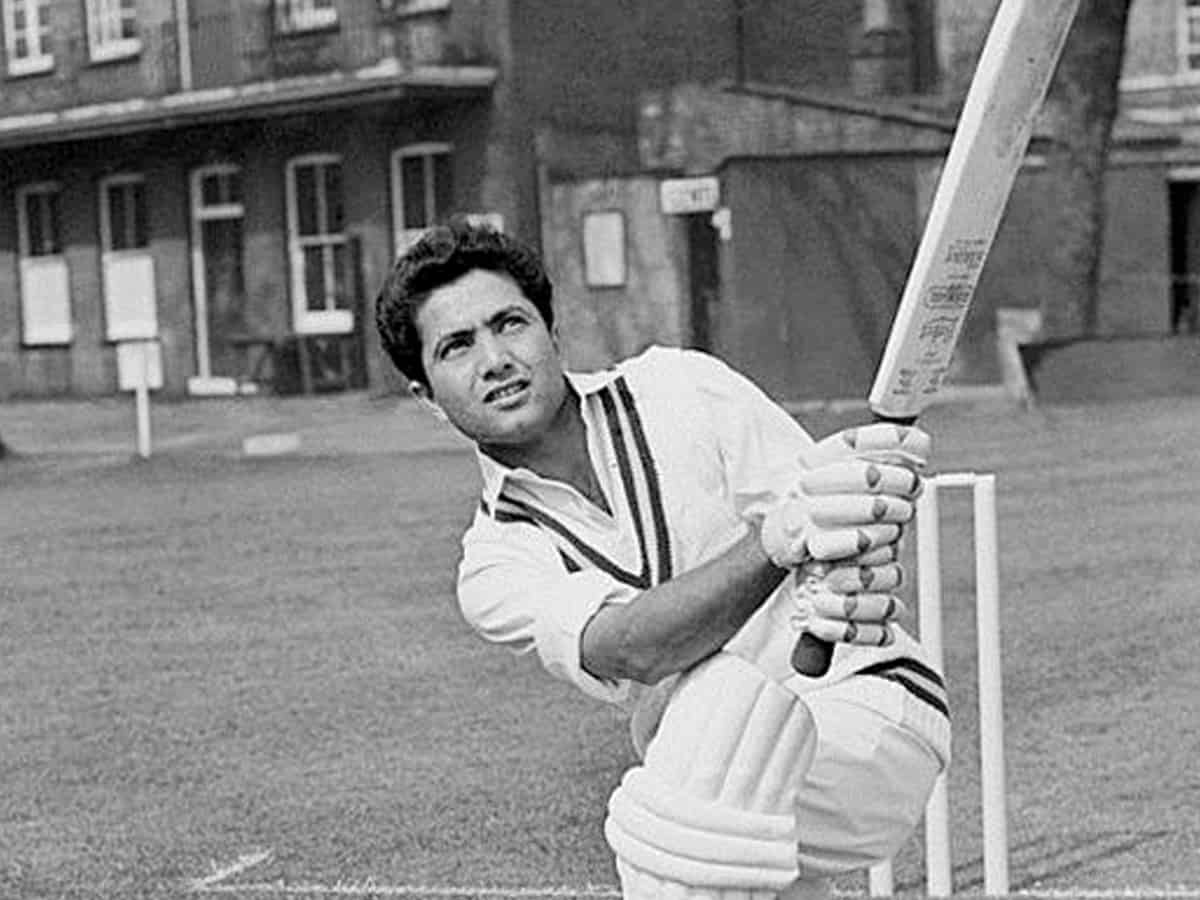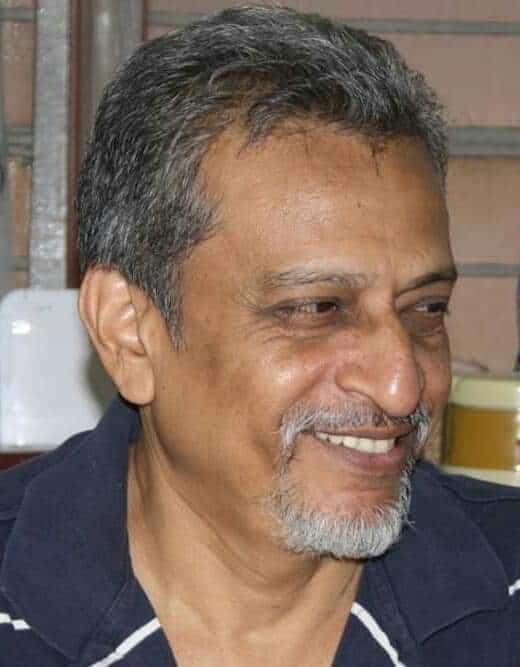

On January 8th, 1959, the legendary Pakistani batsman Hanif Mohammad began an innings that went into the pages of cricket history as one of the greatest innings ever played. Batting for Karachi against Bahawalpur in the Qaid-e-Azam trophy, Hanif went on to break Don Bradman’s world record of 452 and scored 499 before he was run out while trying to complete his 500th run. He ignored physical and mental fatigue and the scorching sun while batting for ten and a half hours to accumulate the highest total seen in first class cricket till then.
The first congratulatory telegram that he received was from Don Bradman himself. Hanif’s total stood as a world record in first class cricket until Brian Lara broke it with 501 not out in the year 1994.
Hanif’s first coach was Abdul Aziz Durani, father of Indian Test star Salim Durani. Years later Hanif recalled: “Master Aziz used to spend all his own money on his trainees. He used to buy us bats, pads and gloves. Often he had no money left for himself. For us he was a father figure and an angel.” It was Aziz who predicted that Hanif would be a great player one day and arranged a free scholarship to help him to develop his game.
In the 55 Test matches that he played, Hanif scored 12 centuries with a knock of 337 as his highest score. Hanif was an incredibly focussed batter whose one and only goal in life was to post huge scores in cricket matches at whatever level he was playing. He represented Pakistan from 1952 to 1969. He scored steadily at an average of 43.98. Unfortunately for him, his career was spread over a period when Pakistan played very few Test matches so that he was able to play only 55 matches in his 17 year career.
Hanif’s first Test century came against India in the 1954-55 series. It was the first time that an Indian team went on a tour of Pakistan and was a historic occasion. Although the matches turned out to be dull contests because both teams were scared of losing, the series was marked by camaraderie between the cricket fans of both sides.
The border was thrown open for thousands of Indian fans who flocked to Pakistan to see the matches. Two special trains were arranged each day to carry visitors. In Lahore, The Tribune newspaper (for which Nobel laureate Rudyard Kipling, author of Jungle Book, had been a correspondent) wrote that the Mall Road and Anarkali Bazaar in Lahore was packed with Indians and Pakistanis greeting each other.
It was in the second Test of this series that the teenaged Hanif scored his first Test century. It was a typical Hanif effort which took up almost 8 hours of solid batting. Hanif always had an obsession for scoring runs and it was this single minded focus that took him to great heights.
A teammate has described an incident about him that illustrates Hanif’s determination and dedication. The player has written that on one occasion in a minor match, Hanif played a perfect defensive shot but the ball swerved due to a strong breeze, found its way past Hanif’s bat and crashed into the stumps.
Hanif was grief stricken by that dismissal. Although it was just a minor match, he could not forgive himself. That night there was a party to which the entire team was invited. But Hanif excused himself and shut himself away in his hotel room. The rest of the team went for the party and when they returned to the hotel they found Hanif practicing the same shot in front of a mirror.
He went through the motions hundreds of times, forcing the correct movements into his psyche so that the next time he faced the same delivery, he would play the shot perfectly and without error. That was what Hanif was like the teammate says. Hanif took his cricket more seriously than he took himself or his own life.
But it is not surprising because Hanif came from an illustrious family of achievers. He was among a band of five brothers out of whom four played Test cricket and another (named Raees) almost did it too. Their names were Wazir, Raees, Hanif, Mushtaq and Sadiq. Later Hanif’s son Shoaib also played Test matches for Pakistan. The proud mother of the five brothers was Ameer Bee who was herself a champion badminton and tennis player in undivided India. It was she who encouraged them and guided them in sports.
The contribution of these brothers to the cause of Pakistan cricket was immense and invaluable. It can be gauged from the fact that at least one brother was in the Pakistan Test cricket team for the first 25 years of Pakistan’s Test cricket history. On 64 occasions at least two of the brothers represented Pakistan together in the same team. In 1969, against New Zealand, three of the brothers donned the Pakistan cap and stepped into the field together. What a proud moment it was for the family and their relatives.
Together these four brothers and Shoaib have scored 36 Test centuries for Pakistan. Three of the family hit double centuries and Hanif Mohammad also scored a triple century (337). Such was his dedication that he once batted one day after he had his toenails removed by surgery. “It was like playing with nails stuck into your toes,” he said. But he went on to compile a century nevertheless.
The family originally was from Junagadh in Gujarat but moved to Pakistan after partition. An interesting sidelight about Junagadh is that the Babi dynasty ruled the kingdom after Mohammad Sher Khan Babi took over power in 1730. Former film actress Parveen Babi is said to have descended from this family.
However, to get back to the brothers, they established themselves and achieved fame and fortune in the land across the border. But they gave back to their country more than they had received. Their feats inspired future generations of Pakistani cricketers to emerge from the shadows of political turmoil and reach the pinnacle of glory in world cricket.
Abhijit Sen Gupta is a seasoned journalist who writes on Sports and various other subjects.



